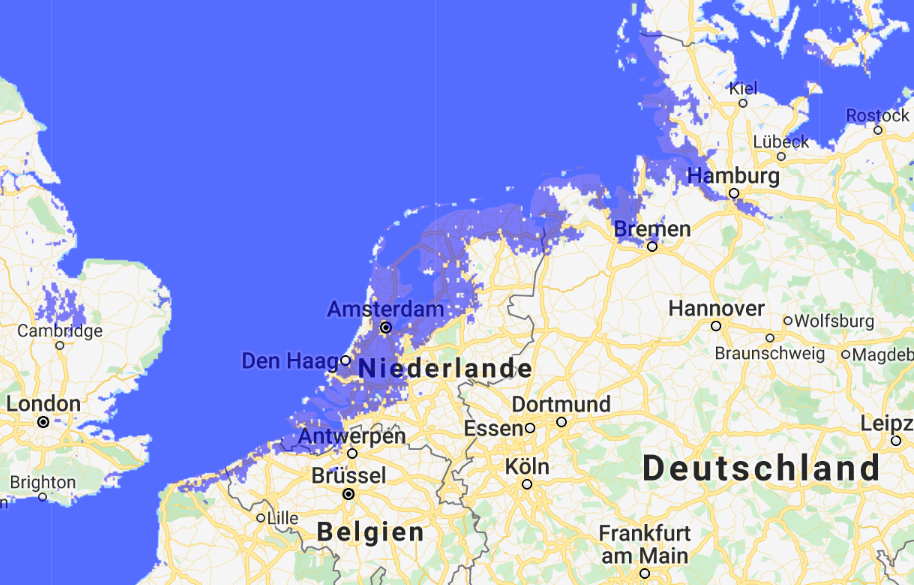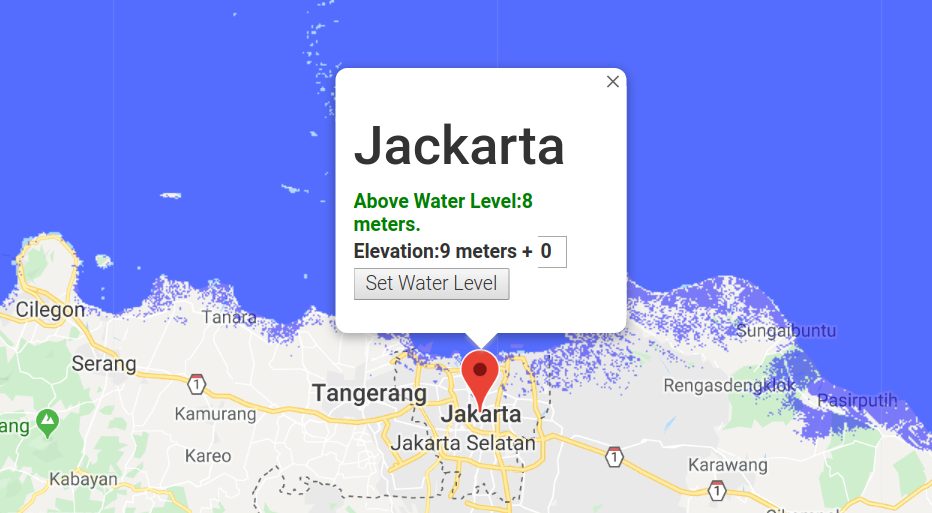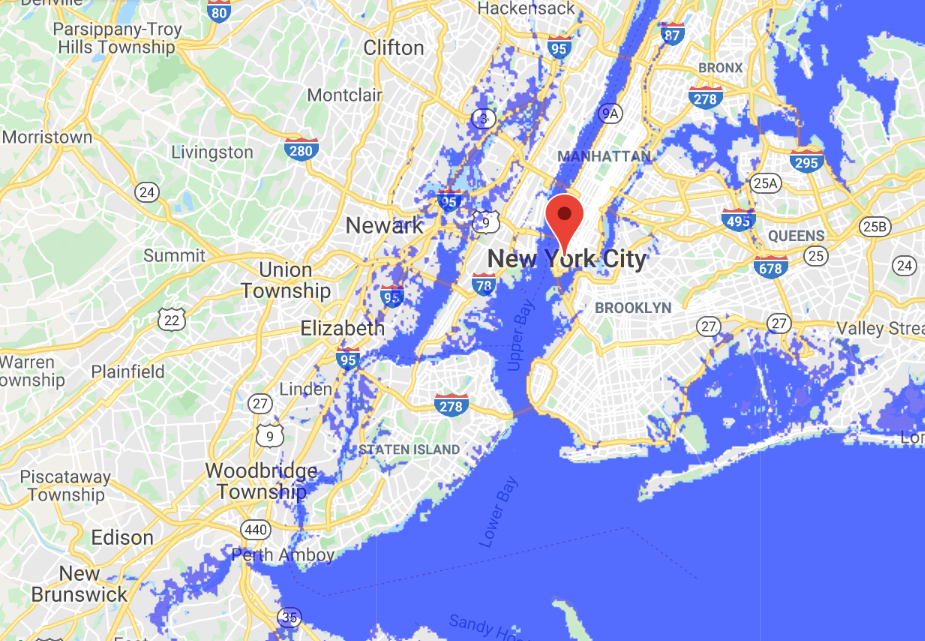I've recently had a discussion about climate change and how we should adjust our politics. My discussion partner was agreeing that we have to change something, but only if every other major player does so as well. Otherwise, Germany would economically hurt itself without achieving anything.
In this post, I will briefly talk about what climat change is, how it affects humanity, what nations can do and what single people can do.
What is Climate Change?
Climate is the long-term average of weather, typically averaged over a period of 30 years. Climate change is the (drastic) change of this.
It's important to stress that it is about long-term averages. So single days, even weeks, in small areas are not important. Locally or short-term, things do change quickly. But globally and long-term, this is rather an exception.
Most importantly, there is global warming.
Effects of Climate Change
See IPCC-2018-SPM for many details and 36C3 - Science for future? for a nice talk
Too hot to Live
Some regions on Earth will have days, maybe even weeks or months where humans cannot survive outside.
Rising Sea Level
The water will rise. Island nations might disappear13:
- less than 1.5 °C: +0.5m
- 1.5 °C to 2.0 °C: +0.5m, but not certain. 250 million people have to move.
- 3.0 °C to 4.0 °C: +0.5m and more. 1000 million people have to move (including New York, Mumbai, Shanghai, Hamburg)
- more than 4.0 °C: +1m; the melting arctic and greenland will make the sea level rise by 50m (!)
The issue with the rising sea level is also that it is salt water. So it might make fertile land become unusable for agriculture.
With floodmap you can get a feeling for how problematic the changes are:



Corals Die
Corals could die, because of Coral bleaching.
When corals die, then a lot of the ecosystem dies. This affects fishing.
Wild Fires
A wildfire is an uncontrolled fire in an area of combustible vegetation occurring in rural areas.
They happen pretty often in Australia, California, Michigan.
Notable wildfires of 2019:
- 2018–19 Australian bushfire season burned 4 000 000 ha
- 2019 Siberia wildfires fires burned 3 000 000 ha
- 2019 Eastern Seaboard (Australia) fires burned >2 000 000 ha, killed 8
- 2019 Alberta wildfires burned 883 414 ha
- 2019 California wildfires burned 102 472, killed 5
- 2019 Amazon rainforest wildfires burned 40 000 ha, killed 2
- 2019 United Kingdom wildfires burned 16 000 ha.
- 2019 Bandipur forest fires (India) burned 4 420 hectares
- 2019 Nelson fires (New Zealand) burned 2 400 ha
Freshwater Shortage
See The effects of climate change on water shortages
Famines
If it becomes too hot, if the salty water of the sea rises, if catastrophies like hurricanes increase, then we will produce globally less food. This means people will starve.
Just to sow you that famines are still happening:
- Famine in Yemen (2016–present): Over 17 million of Yemen's population are at risk
- 2017 Somali drought: affected more than 6 million people
- 2017 South Sudan famine: affected 5 million people
Refugees and War
If people are starving, they will try to fix that problem. The easiest ways to do so are either to go somewhere else or to take food / good land / resources from somebody else. Think of the region around Isreal and access to drinking water.
Cost-Benefit Analysis
The above effects are hopefully enough to make anybody aware that this might be a topic which we should think about working on.
To estimate how much money it is worth to put into this issue, look at the cost of reaching the climate targets and the cost of not doing so:
| Target | Cost to reach | Expected Economic Damages |
|---|---|---|
| 1.5 °C | ? | 300 billion USD |
| 2.0 °C | ? | 20 trillion USD |
| 3.0 °C | ? | 15% - 25 % reduction in per capita outcome |
| 4.0°C | ? | 30 % reduction in per capita outcome |
What politics can do
In the following, I will quickly summarize the idea of emissions trading and the CO2 budget. This is the only reliable way to reach the climate goals.
The Budget
There is a CO2 equivalent for other gases. According to mdr Wissen1, the production of the CO2 equivalent within Germany in 2017 is as follows:
- 88% CO2
- 6% Methane
- 4% N2O
This means Germany can and should focus on CO2 and Methane.
There are many small-scale discussions in Germany (Speed limit to 120km/h, CCS, CDR, higher energy standards for lightbulbs and houses).
The problem is, it is by far not enough. We need all of it and more.
We can see CO2 as a finite resource. We have a certain CO2 budget which we may emmit each year. And we already have a good instrument to deal with limited budget: Money.
If we want to have a 50/50 chance to stay below the 1.5°C target, then the world has a budget of 480 Gt CO2. As Germany has 1.07% of the worlds population, one could argue it has 5.1 Gt CO2 budget. Not per year. In total. Ever.
It's hard to make plans for the end of time, so let's keep it at 50 years. This means we have a budget of 100 Mt per year. In 2017, we were at 796 Mt.
Certificates
Let's assume we had a budget of 100 Mt for 2019. Now Germany could sell certificates. Companies could buy them and they would need to have a certificate for each ton of CO2-equivalent they emmit. If they emmit more, they have to buy from another company or plant 2 trees (and keep them alive for 40 years) per ton they emmitted. As a hornbeam of 22 years costs 890 EUR this means each ton of CO2 has to be punished by 3236 EUR.
The 696 Mt we emmited too much in 2017 would therefore cost 2 252 256 million Euro. Here you can see that planting trees is not the a golden bullet solution. We need to reduce the emmissions.
Social Justice
Making CO2 certificates expensive and applying them everywhere will increase the cost of many goods. That will be hardest for low-level income families. However, it is also a chance for social justice: The money that Germany receives via the CO2 certificate auction can be distributed to every German citicen equally. This way, if a person does use less than their share of the CO2 budget, they actually are better off at the end. People who use more, e.g. by flying on vaccation, pay for the harm they do to all of us.
This point is made well in CO2-Steuer - sinnvolle Maßnahme oder unfaire Belastung? by Joul.
What we can do
There are many small things:
- Diet:
- Reduce meat consumption
- Reduce milk product consumption
- Eat food which was grown locally
- Commute:
- Drive less by car, more by public transportation
- Drive less by public transportation, more by bike
- Look for a work place close to your home / an appartment close to your work / remote work options
- A Freight bicycle could help to do more with the bike
- Vacation:
- Don't fly far away. There are nice places close to you. And if you don't have to spend 700 EUR on flight tickets, you can spend more on whatever you enjoy.
- Home:
- Use less concrete for house building
- Insulate your house well to reduce heating costs
- Use the sun - add solar pannels / solar thermal energy
Here you can get a feeling for which action has which effect:
| Name | CO2 Kilos Equivalent | Source |
| 1kg Lamb | 39.2 kg | 4 |
| 1kg Beef | 27.0 kg | 4 |
| 1kg Cheese | 13.5 kg | 4 |
| 1kg Pork | 12.1 kg | 4 |
| 1kg Turkey | 10.9 kg | 4 |
| 1kg Chicken | 6.9 kg | 4 |
| 1kg Tuna | 6.1 kg | 4 |
| 1kg Eggs | 4.8 kg | 4 |
| 1kg Potatoes | 2.9 kg | 4 |
| 1kg Rice | 2.7 kg | 4 |
| 1kg Nuts | 2.3 kg | 4 |
| 1kg Beans/tofu | 2.0 kg | 4 |
| 1kg Vegetables | 2.0 kg | 4 |
| 1kg Milk | 1.9 kg | 4 |
| 1kg Fruit | 1.1 kg | 4 |
| 1kg Lentils | 0.9 kg | 4 |
| 1L Gasoline | 2.32 kg | 5 |
| 1L Diesel | 1.65 kg | 5 |
| 1L LPG | 1.79 kg | 5 |
| 1L CNG | 1.63 kg | 5 |
| Driving 100 km with VW Golf (gasoline) | 13.22 kg | 5.7L/100km * 2.32 kg / L * 100 km |
| Driving 100 km with VW Golf (Diesel) | 8.91 kg | 5.4L/100km * 1.65 kg / L * 100 km |
| Driving 100 km with VW Golf (CNG) | 6.85 kg | 4.2L/100km * 1.63 kg / L * 100 km |
| Driving 100 km with Opel Astra (Benzin) | 15.08 kg | 6.5L/100km * 2.32 kg / L * 100 km |
| Driving 100 km with Opel Astra (Diesel) | 9.08 kg | 5.5L/100km * 1.65 kg / L * 100 km |
| Flying 100km (per person) | 38 kg | 9 |
| 1 kWh electricity | 0.474 kg | statista |
| 1 year of AmazonBasics E27 | 58.13 kg | 14 W * 365*24h * (0.474/1000) kg / Wh |
| 10h Laptop usage | 0.26 kg | 55 W * 10h * (0.474/1000) kg / Wh |
| 1 year of old refridgerator (90L) | 185.80 kg | 392 kWh * 0.474 kg / kWh, Röhling |
| 1 year of new refridgerator (90L) | 74.42 kg | 157 kWh * 0.474 kg / kWh, Röhling |
What you should take from this table:
- Updating your old refridgerator helps A LOT
- Flying is likely also an easy point where you can reduce your carbon footprint a lot
- Changing your diet (e.g. going from beef to chicken or even to no meet) helps as well
- Single lightbulbs don't matter that much. Remember, that this can quickly become big if you have many and if you let them run for a long time. Astonishingly, a laptop isn't sooo much worse either.
What about...
... China and India?
For sure, we cannot reach the climate targets if the big players (China, USA, India, Russia, Japan, Germany, Iran, Korea, Saudi Arabia, Indonesia - see 12) are not taking part.
However, if everybody waits for others to start, nothing will ever happen. It is also a fair argument to say that the western states have used a lot of their carbon budget in the past years already. The time, when China and India had very little emissions.
It is way easier to build pressure to change if we go ahead as a leading example.
Even if we assume that the world will not follow and we will not meet the climate targets anyway: Adding a big carbon tax will incentivize changes which help us in other places:
- Improving energy efficiency: Will help to reduce your electricity bill
- Traveling less by plane: Could push our local economy
- Switching to renewable energy: More renewable energy has the chance to build a more distributed, more stable energy grid. It could make us less dependent on foreign nations. This will be especially important when it comes to a climate crisis.
- Switching to electric / CNG / LPG cars: Less particulates will help to make our cities cleaner. This will make us, the people who live in cities healthier.
- Improve the diet: Do I really have to write that this will very likely make you healthier if you eat less meat?
- Localize the diet: Again, this makes us more robust against changes. We have it in our control to have enough food.
Resources
References
-
Kristin Kielon: Die Top 5 Der CO2-Verursacher Deutschlands nach Sektoren in mdr Wissen, 14.10.2019. ↩
-
Klima-Orakel: Wie viele Bäume sind nötig, um eine Tonne CO2 zu binden?, 18.06.2009. ↩
-
Tanya Lewis: The top 10 foods with the biggest environmental footprint, 19.09.2019. ↩
-
Kraftstoffverbrauch: So viel CO2 stößt Ihr Auto aus in DHZ, 08.08.2019. ↩
-
Spritmonitor.de: Benzinverbrauch: Volkswagen - Golf (Benzin) ↩
-
Horst Schwarz: Info: CO2-Ausstoss von Flugzeugen im Vergleich zum Auto, 23.09.2017. ↩
-
Entwicklung des CO2-Emissionsfaktors für den Strommix in Deutschland in den Jahren 1990 bis 2018 ↩
-
Marc Röhling: Raus mit dem alten Kühlschrank?, 2017. ↩
-
Die zehn größten CO2-emittierenden Länder nach Anteil an den weltweiten CO2-Emissionen im Jahr 2018 on Statista, 2019. ↩
-
Was passiert bei 1,5 Grad mehr? Was bei 2, 3 und 4 Grad?, 28.11.2015. ↩
-
Marshall Burke, W. Matthew Davis & Noah S. Diffenbaugh: Large potential reduction in economic damages under UN mitigation targets in Nature, 2018. ↩